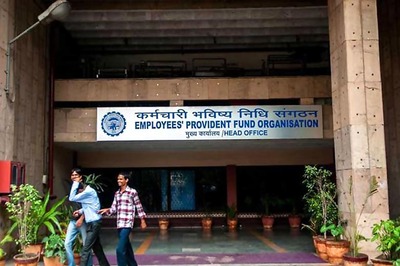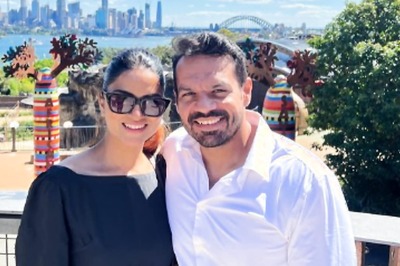
views
Planning for retirement holds paramount significance to commence the process as early as feasible. Experts believe initiating your savings journey sooner allows your money a greater duration to flourish, thereby ensuring a more substantial retirement fund. Moreover, the larger the amount you save, the greater the level of comfort you can expect during your retirement years.
There are many things to consider before retirement planning. Here are a few of the most important:
Your current income and expenses: How much money do you currently make? How much do you spend each month? This will give you a good starting point for determining how much money you need to save for retirement.
Your age and health: How old are you? Are you in good health? These factors will affect how much money you need to save and how you invest it.
Your retirement goals: What do you hope to do in retirement? Do you want to travel, spend more time with family, or pursue hobbies? Your goals will help you determine how much money you need to save and how to invest it. Determine your financial objectives for retirement. Consider the lifestyle you want to maintain, healthcare expenses, and any specific aspirations you have for your post-retirement years.
Your retirement savings: Do you have any retirement savings? If so, how much? This will determine how much more money you need to save.
Current expenses: Evaluate your present expenses to understand your spending patterns. This will help you estimate the amount of money you’ll need during retirement.
Inflation: Factor in the impact of inflation on your savings and future expenses. In India, the cost of living tends to increase over time, so it’s crucial to account for this when planning for retirement.
Retirement corpus: Calculate the amount of money you’ll require to sustain yourself during retirement. Consider factors such as monthly expenses, emergency funds, and potential healthcare costs.
Retirement plans: Explore different retirement plans available in India, such as the National Pension Scheme (NPS), Employee Provident Fund (EPF), Public Provident Fund (PPF), and individual retirement plans offered by insurance companies. Understand their features, benefits, and tax implications to make an informed decision.
Tax implications: Familiarise yourself with the tax regulations related to retirement savings and withdrawals in India. Take advantage of tax-efficient investment options and explore tax benefits available for retirement contributions.
Investment strategies: Determine your risk tolerance and investment preferences. Explore various investment avenues such as mutual funds, stocks, bonds, real estate, and fixed deposits. Diversify your portfolio to minimise risks and maximise returns. However, know all details before you invest in any market related product as they carry risks as well.
Professional advice: How much do you know about investing? If you’re not comfortable investing on your own, consider working with a financial advisor. Consider seeking guidance from an advisor or retirement planner who can help you navigate the complexities of retirement planning. They can assist in creating a customised plan based on your specific needs and goals.


















Comments
0 comment